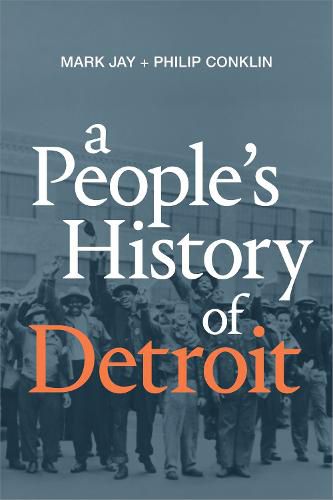Readings Newsletter
Become a Readings Member to make your shopping experience even easier.
Sign in or sign up for free!
You’re not far away from qualifying for FREE standard shipping within Australia
You’ve qualified for FREE standard shipping within Australia
The cart is loading…






Recent bouts of gentrification and investment in Detroit have led some to call it the greatest turnaround story in American history. Meanwhile, activists point to the city’s cuts to public services, water shutoffs, mass foreclosures, and violent police raids. In A People’s History of Detroit, Mark Jay and Philip Conklin use a class framework to tell a sweeping story of Detroit from 1913 to the present, embedding Motown’s history in a global economic context. Attending to the struggle between corporate elites and radical working-class organizations, Jay and Conklin outline the complex sociopolitical dynamics underlying major events in Detroit’s past, from the rise of Fordism and the formation of labor unions, to deindustrialization and the city’s recent bankruptcy. They demonstrate that Detroit’s history is not a tale of two cities-one of wealth and development and another racked by poverty and racial violence; rather it is the story of a single Detroit that operates according to capitalism’s mandates.
$9.00 standard shipping within Australia
FREE standard shipping within Australia for orders over $100.00
Express & International shipping calculated at checkout
Recent bouts of gentrification and investment in Detroit have led some to call it the greatest turnaround story in American history. Meanwhile, activists point to the city’s cuts to public services, water shutoffs, mass foreclosures, and violent police raids. In A People’s History of Detroit, Mark Jay and Philip Conklin use a class framework to tell a sweeping story of Detroit from 1913 to the present, embedding Motown’s history in a global economic context. Attending to the struggle between corporate elites and radical working-class organizations, Jay and Conklin outline the complex sociopolitical dynamics underlying major events in Detroit’s past, from the rise of Fordism and the formation of labor unions, to deindustrialization and the city’s recent bankruptcy. They demonstrate that Detroit’s history is not a tale of two cities-one of wealth and development and another racked by poverty and racial violence; rather it is the story of a single Detroit that operates according to capitalism’s mandates.